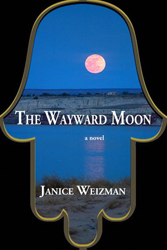Join a community of readers who are committed to Jewish stories
Sign up for JBC’s Nu Reads, a curated selection of Jewish books delivered straight to your door!
 A young man leaves his home and sets out on a journey. He is impressionable, sensitive, and inexperienced in the ways of the world. Because he is young, everything is new, surprising, a revelation. He is awkward, but also hopeful. He knows little, but he is eager to learn. He is betrayed by those he trusts, and happily surprised by people he thought were his enemies. So it goes as he journeys in and out of chance meetings, mishaps, and adventures. And ultimately, after feeling the full weight of his experiences in his soul, he comes to understand a truth about himself, about the world, and his place in it.
A young man leaves his home and sets out on a journey. He is impressionable, sensitive, and inexperienced in the ways of the world. Because he is young, everything is new, surprising, a revelation. He is awkward, but also hopeful. He knows little, but he is eager to learn. He is betrayed by those he trusts, and happily surprised by people he thought were his enemies. So it goes as he journeys in and out of chance meetings, mishaps, and adventures. And ultimately, after feeling the full weight of his experiences in his soul, he comes to understand a truth about himself, about the world, and his place in it.
The literary term for this sort of novel is the bildungsroman. In English, we might call it a novel of self-discovery and it is a classic genre in both Western and world literature. Our literary canon is full of such tales of self-realization. Tom Jones and David Copperfield are examples of the genre as are Catcher in the Rye, On the Road, and A Portrait of an Artist as a Young Man. Though works involving a heroine are few, Jane Eyre comes to mind as a rare exception. But generally, women, and particularly Jewish women, are absent from the genre.
This is not at all surprising. Traditionally, Jewish women were not the protagonists of stories about self-discovery. Rather, they were usually married off and on their way to motherhood while still teenagers. The trajectory of a Jewish woman’s life was set out for her from the day she was born, and it did not involve venturing into the world to seek one’s fortune.
But what would have happened if a woman was forced by circumstance to undertake such a journey? What if she had to make her way in the world alone? What would be her fears? Her concerns? Her particular vulnerabilities? How would she survive? What would she learn about the world? What would she learn about herself?
In The Wayward Moon, I’ve put my heroine in precisely this situation. Rahel Bat Yair is a 17-year-old Jewish girl living in the Babylonian town of Sura in the 9th century Middle East. The story opens on the eve of her engagement, and Rahel, entirely content in her own world, has no desire to travel anywhere. Unlike the typical male hero of a bildungsroman, she has no use for experience or adventure. When circumstance forces her to take to the road, like Homer’s Odysseus, she wants nothing more than to go home, but unlike him, she has no home to return to.
Typically, at the end of a bildungsroman, the hero has achieved a modicum of self-knowledge, and whether he returns home or begins anew, he is able to utilize his experiences in forging his life as an adult. Would Rahel Bat Yair be able to utilize her experiences? Would there be a way for her to draw on her hard-won knowledge to enable her to contribute to her community? Or would she choose to conceal what she has seen and done?
Considering how little has come down to us about women’s lives in Jewish society of her time, we can easily speculate about the answer.
Check back on Wednesday for Janice Weizman’s next post for the Visiting Scribe.
Janice Weizman’s first book, the award-winning historical novel, The Wayward Moon (Yotzeret, 2012), was recently reissued with Toby Press. In addition to dabbling in essays and translation, she curates the book review website, ReadingJewishFiction.com. Born and raised in Toronto, Ontario, Janice has lived in Israel for over 40 years. Our Little Histories is her second novel.